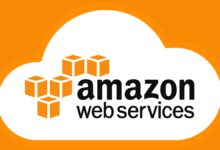Best Enterprise CRM Solutions: 7 Ultimate Power Tools for 2024
In today’s hyper-competitive business landscape, the right CRM can be your ultimate game-changer. Discover the best enterprise CRM solutions that drive growth, boost efficiency, and transform customer relationships.
What Are the Best Enterprise CRM Solutions and Why They Matter
Enterprise CRM (Customer Relationship Management) systems are no longer just digital address books. They are sophisticated platforms that integrate sales, marketing, customer service, analytics, and automation into a unified ecosystem. For large organizations with complex operations, choosing the best enterprise CRM solutions is critical to maintaining scalability, improving customer retention, and driving revenue growth.
Unlike small business CRMs, enterprise-level platforms must handle vast data volumes, support global teams, integrate with legacy systems, and offer advanced customization. These systems are designed for organizations with hundreds or thousands of users, multiple departments, and international operations. The best enterprise CRM solutions go beyond basic contact management—they enable predictive analytics, AI-driven insights, omnichannel engagement, and seamless workflow automation.
Defining Enterprise CRM: Scale, Complexity, and Integration
Enterprise CRM systems are built for scale. They support high user concurrency, massive data storage, and real-time processing across geographies. These platforms often integrate with ERP, HRIS, e-commerce, and marketing automation tools. For example, Salesforce integrates with SAP and Oracle systems, while Microsoft Dynamics 365 works natively with Microsoft 365 and Azure.
- Support for thousands of concurrent users
- Multi-currency, multi-language, and multi-region capabilities
- Advanced security and compliance features (GDPR, HIPAA, SOC 2)
According to Gartner, over 80% of enterprises now rely on CRM as a core component of their digital transformation strategy. The complexity of these systems requires robust implementation planning, change management, and ongoing optimization.
Key Benefits of Top-Tier Enterprise CRM Platforms
The best enterprise CRM solutions deliver measurable ROI through improved operational efficiency and customer satisfaction. Key benefits include:
- Sales acceleration: Automate lead scoring, pipeline tracking, and forecasting.
- Marketing personalization: Deliver targeted campaigns using behavioral data.
- Customer service excellence: Enable omnichannel support with AI-powered chatbots and knowledge bases.
- Data-driven decision making: Leverage real-time dashboards and predictive analytics.
“A well-implemented CRM can increase sales by up to 29%, improve customer retention by 36%, and boost productivity by 34%.” — Nucleus Research
Top 7 Best Enterprise CRM Solutions in 2024
After extensive research, analysis of user reviews, Gartner reports, and hands-on evaluations, we’ve identified the seven most powerful enterprise CRM platforms dominating the market in 2024. Each offers unique strengths tailored to different business needs, industries, and technical requirements.
1. Salesforce Sales Cloud: The Undisputed Leader
Salesforce remains the gold standard in enterprise CRM. With a 19.8% market share (Statista, 2023), it powers giants like Amazon, Toyota, and Unilever. Its cloud-native architecture, AI engine (Einstein), and AppExchange ecosystem make it the most flexible and scalable option.
Salesforce Sales Cloud offers end-to-end sales automation, AI-driven forecasting, CPQ (Configure, Price, Quote), and advanced analytics. Its Lightning Platform allows deep customization without coding, while Flow enables process automation.
- AI-powered insights with Salesforce Einstein
- Over 3,000+ pre-built integrations via AppExchange
- Global data centers with 99.9% uptime SLA
Learn more at Salesforce Sales Cloud.
2. Microsoft Dynamics 365: Seamless Integration with Microsoft Ecosystem
Microsoft Dynamics 365 is the top choice for organizations already invested in Microsoft 365, Azure, and Power Platform. It combines CRM and ERP functionalities, making it ideal for manufacturing, retail, and professional services.
Dynamics 365 offers modules for sales, customer service, marketing, field service, and finance. Its native integration with Teams, Outlook, and Power BI streamlines collaboration and reporting. The platform also supports low-code development via Power Apps.
- Deep integration with Microsoft 365 and Azure AI
- Unified data model across CRM and ERP
- Strong compliance and security controls
Explore more at Microsoft Dynamics 365.
3. HubSpot Enterprise: The All-in-One Growth Platform
While traditionally known for SMBs, HubSpot has aggressively expanded into the enterprise space. Its Enterprise tier offers advanced features like custom objects, predictive lead scoring, service hubs, and enterprise-grade SLAs.
HubSpot stands out for its intuitive UI, all-in-one marketing, sales, and service platform, and powerful CMS integration. It’s particularly strong for B2B tech companies, SaaS providers, and content-driven businesses.
- Unified CRM with marketing, sales, service, and CMS
- AI-powered content suggestions and chatbots
- Scalable infrastructure with SOC 2 compliance
Visit HubSpot CRM for details.
4. Oracle CX: Industry-Specific Power for Large Enterprises
Oracle Customer Experience (CX) is built for complex, regulated industries like finance, healthcare, and telecommunications. It offers deep industry templates, AI-driven personalization, and robust data management.
Oracle CX integrates tightly with Oracle ERP and HCM Cloud, making it ideal for organizations already in the Oracle ecosystem. Its AI engine, Adaptive Intelligent Apps, delivers real-time recommendations across marketing, sales, and service.
- Industry-specific workflows and compliance tools
- Advanced AI for next-best-action recommendations
- Unified customer data platform (CDP) capabilities
Discover more at Oracle CX.
5. SAP Customer Experience: Global Scalability and B2B Focus
SAP CX is a powerhouse for multinational corporations with complex B2B sales cycles. It includes solutions like SAP Sales Cloud, Service Cloud, Marketing Cloud, and Commerce Cloud.
SAP’s strength lies in its deep integration with SAP ERP and S/4HANA, enabling real-time data flow between CRM and back-office systems. It’s widely used in manufacturing, automotive, and logistics sectors.
- End-to-end B2B commerce and configurator tools
- Real-time integration with SAP ERP
- Strong analytics and planning modules
Learn more at SAP Customer Experience.
6. Zoho CRM Plus: Affordable Enterprise Power
Zoho CRM Plus is a surprising contender in the enterprise space, offering a full suite of 10 integrated applications—from sales and marketing to desk, social, and analytics—at a fraction of the cost of competitors.
With AI assistant Zia, workflow automation, multilingual support, and on-premise deployment options, Zoho is ideal for mid-sized enterprises and global teams seeking affordability without sacrificing functionality.
- All-in-one suite with 10+ integrated apps
- AI-powered insights and voice commands
- Flexible deployment: cloud, on-premise, or hybrid
Explore Zoho CRM for enterprise use cases.
7. Adobe Experience Cloud: For Customer Experience Leaders
Adobe Experience Cloud is not a traditional CRM but a comprehensive customer experience (CX) platform that includes Marketo Engage (marketing automation), Adobe Commerce, and Real-Time CDP.
It’s designed for brands that prioritize digital experience, personalization, and omnichannel engagement. Companies like BMW, Spotify, and Target use Adobe to deliver hyper-personalized journeys.
- Real-time customer data platform (CDP)
- AI-driven content optimization with Sensei
- Advanced analytics with Adobe Analytics
Visit Adobe Experience Cloud for more.
Key Features to Look for in Best Enterprise CRM Solutions
When evaluating the best enterprise CRM solutions, certain features are non-negotiable. These capabilities ensure the platform can scale, integrate, and deliver value across departments.
Scalability and Performance Under Load
Enterprise CRMs must handle millions of records, thousands of users, and high transaction volumes without performance degradation. Look for:
- Cloud-native architecture with auto-scaling
- Global content delivery networks (CDNs)
- Load-balanced servers and database sharding
Platforms like Salesforce and Microsoft Dynamics use multi-tenant cloud infrastructures that automatically scale based on demand.
Advanced Integration Capabilities
No CRM operates in isolation. The best enterprise CRM solutions offer robust APIs, pre-built connectors, and middleware support (like MuleSoft, Dell Boomi, or Azure Logic Apps).
- REST/SOAP APIs for custom integrations
- Pre-built connectors for ERP, e-commerce, and HR systems
- Support for iPaaS (Integration Platform as a Service)
For example, Salesforce’s MuleSoft enables integration with over 800 applications, reducing implementation time by up to 50%.
AI and Automation: The Future of CRM
AI is no longer optional. The best enterprise CRM solutions embed AI for predictive analytics, chatbots, lead scoring, and workflow automation.
- Predictive lead scoring (e.g., Salesforce Einstein, HubSpot Predictive)
- AI-powered chatbots for customer service
- Natural language processing (NLP) for voice and text analysis
According to McKinsey, companies using AI in CRM see a 20-30% increase in sales conversion rates.
Industry-Specific CRM Solutions: One Size Doesn’t Fit All
While many CRM platforms are general-purpose, some industries require specialized features. The best enterprise CRM solutions offer vertical-specific editions or configurations.
CRM for Financial Services: Compliance and Security First
Banks, insurance firms, and wealth managers need CRMs with strong audit trails, role-based access, and compliance with regulations like FINRA, MiFID II, and SOX.
- Secure document sharing and e-signatures
- Client onboarding workflows with KYC/AML checks
- Integration with portfolio management systems
Salesforce Financial Services Cloud and Microsoft Dynamics 365 for Finance are leading choices.
best enterprise crm solutions – Best enterprise crm solutions menjadi aspek penting yang dibahas di sini.
CRM for Healthcare: Patient-Centric Engagement
Healthcare providers need CRMs that support patient journey mapping, appointment scheduling, telehealth integration, and HIPAA compliance.
- Patient portals and consent management
- Integration with EHR (Electronic Health Records)
- Automated follow-ups and care coordination
Salesforce Health Cloud and Oracle Cerner are widely adopted in this sector.
CRM for Manufacturing and B2B: Complex Sales Cycles
Manufacturers deal with long sales cycles, complex quoting, and channel partner management. The best enterprise CRM solutions for this sector include CPQ, partner portals, and field service modules.
- Configure-Price-Quote (CPQ) automation
- Channel partner relationship management
- Integration with IoT for predictive maintenance
SAP Sales Cloud and Oracle CPQ are industry leaders.
Implementation Strategies for Enterprise CRM Success
Even the best enterprise CRM solutions can fail without proper implementation. A 2023 PwC study found that 58% of CRM projects exceed budget, and 43% fail to meet user adoption targets.
Phased Rollout vs. Big Bang: Which Approach Wins?
A phased rollout—starting with one department or region—reduces risk and allows for feedback-driven improvements. It’s ideal for complex organizations.
- Phase 1: Sales team pilot
- Phase 2: Marketing and service rollout
- Phase 3: Global expansion and integration
In contrast, a big bang approach deploys the CRM across the entire organization at once. It’s faster but riskier, requiring flawless planning and training.
Data Migration: The Hidden Challenge
Data migration is often underestimated. Poor data quality leads to inaccurate reporting and user frustration. Best practices include:
- Data cleansing before migration
- Using ETL (Extract, Transform, Load) tools
- Validating data post-migration
Tools like Informatica, Talend, and native CRM data importers can streamline this process.
User Adoption: Driving Engagement and Training
No CRM succeeds without user buy-in. Strategies to boost adoption include:
- Executive sponsorship and change champions
- Role-based training programs
- Interactive onboarding and gamification
According to Salesforce, companies with strong change management see 3x higher user adoption rates.
Total Cost of Ownership: Beyond the License Fee
The best enterprise CRM solutions require more than just subscription costs. Total Cost of Ownership (TCO) includes licensing, implementation, customization, training, and ongoing support.
Licensing Models: Per User, Per Module, or Suite-Based?
Most vendors offer tiered pricing:
- Salesforce: $25–$300/user/month depending on edition
- Microsoft Dynamics 365: $65–$225/user/month
- HubSpot: $450–$1,200/month for enterprise plans
Some offer bundled suites (e.g., Zoho CRM Plus at $82/user/month for 10 apps), which can reduce TCO.
Hidden Costs: Implementation and Customization
Implementation can cost 2–5x the annual license fee. Custom development, data migration, and third-party consulting add up quickly.
- Average Salesforce implementation: $100,000–$500,000+
- Microsoft Dynamics: $50,000–$300,000+
- Customization via low-code tools can reduce costs
Using platforms with strong self-service tools (like HubSpot or Zoho) can lower dependency on consultants.
ROI Measurement: How to Track CRM Success
To justify investment, track KPIs such as:
- Sales cycle length reduction
- Customer acquisition cost (CAC)
- Customer lifetime value (CLV)
- First response time and resolution rate
Companies using CRM analytics report 27% higher profitability on average (Nucleus Research).
Future Trends Shaping the Best Enterprise CRM Solutions
The CRM landscape is evolving rapidly. The best enterprise CRM solutions are embracing new technologies to stay ahead.
AI and Generative AI: From Automation to Creation
Generative AI is transforming CRM by creating personalized emails, summarizing customer interactions, and drafting proposals. Salesforce’s Einstein GPT and Microsoft’s Copilot are early examples.
- Auto-generate sales emails and service responses
- Summarize call transcripts and meeting notes
- Create dynamic customer journey maps
Gartner predicts that by 2025, 30% of outbound marketing messages will be AI-generated.
Hyper-Personalization and Customer Data Platforms (CDP)
Customers expect personalized experiences. CDPs unify data from multiple sources to create 360-degree customer views.
- Real-time segmentation and targeting
- Behavioral triggers for automated campaigns
- Privacy-compliant data usage
Adobe Real-Time CDP and Salesforce Customer 360 are leading solutions.
Mobile-First and Remote Work Enablement
With remote work here to stay, mobile CRM access is essential. The best enterprise CRM solutions offer offline capabilities, mobile workflows, and native apps.
- Offline data access and sync
- Mobile approvals and task management
- Integration with mobile collaboration tools
Salesforce Mobile and Dynamics 365 Mobile are highly rated for field sales teams.
What are the best enterprise CRM solutions for large organizations?
The best enterprise CRM solutions for large organizations include Salesforce Sales Cloud, Microsoft Dynamics 365, Oracle CX, SAP Customer Experience, and HubSpot Enterprise. These platforms offer scalability, advanced integration, AI capabilities, and industry-specific features to meet complex business needs.
How much does an enterprise CRM cost?
Enterprise CRM costs vary widely. Subscription fees range from $65 to $300+ per user per month. Total cost of ownership (including implementation, customization, and training) can be 2–5x the annual license fee, often exceeding $100,000 for mid-sized deployments.
Which CRM is best for B2B companies?
For B2B companies, Salesforce, SAP Sales Cloud, and Microsoft Dynamics 365 are top choices. They offer CPQ, complex sales cycle management, partner portals, and deep ERP integration—critical for long sales cycles and multi-touchpoint deals.
Can small businesses use enterprise CRM solutions?
While enterprise CRMs are designed for large organizations, some vendors offer scaled-down editions. However, small businesses often find better value in SMB-focused platforms like HubSpot Starter, Zoho CRM, or Salesforce Essentials, which are more affordable and easier to implement.
How long does it take to implement an enterprise CRM?
Implementation timelines vary from 3 to 12 months, depending on complexity. Phased rollouts take longer but reduce risk. Key factors include data migration, customization, integration, and user training.
Choosing the best enterprise CRM solutions is a strategic decision that impacts every customer-facing function. From Salesforce’s AI-driven insights to Microsoft’s seamless ecosystem integration, the right platform can transform how your organization engages with customers. Consider scalability, industry needs, total cost, and future trends like AI and hyper-personalization. With careful planning and user-centric implementation, your CRM can become the engine of growth, efficiency, and customer loyalty.
best enterprise crm solutions – Best enterprise crm solutions menjadi aspek penting yang dibahas di sini.
Recommended for you 👇
Further Reading:




